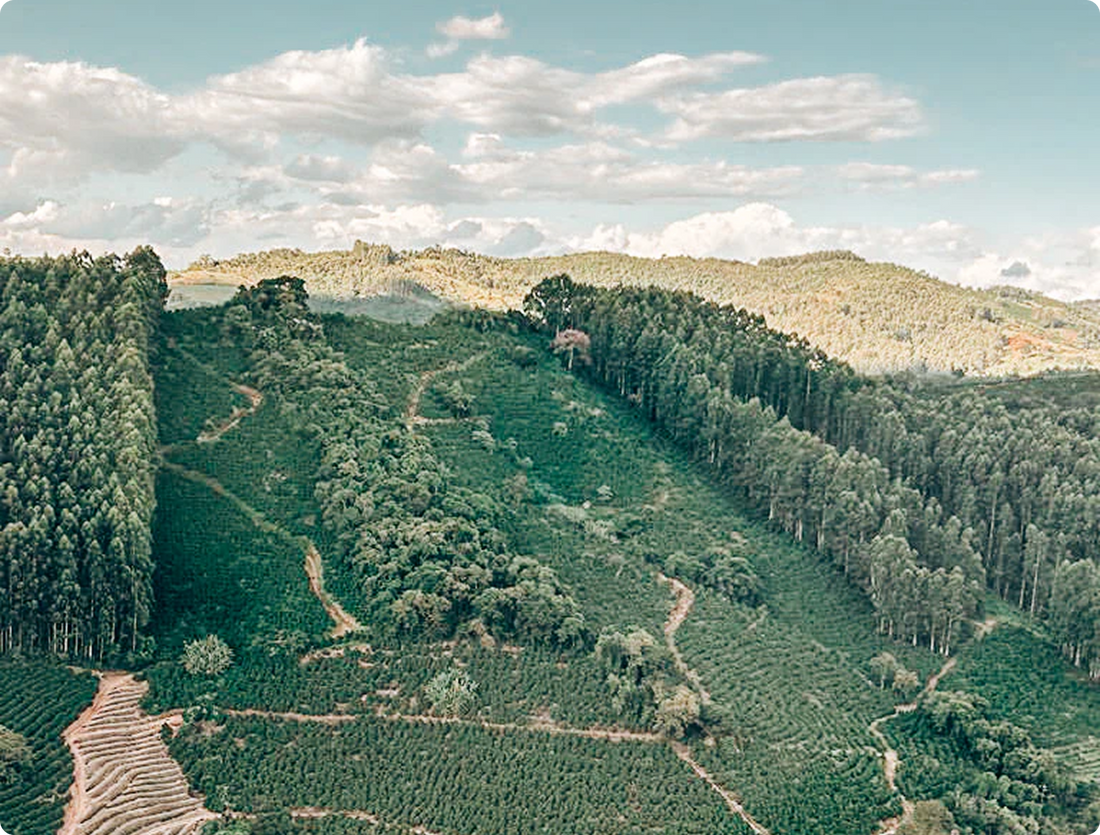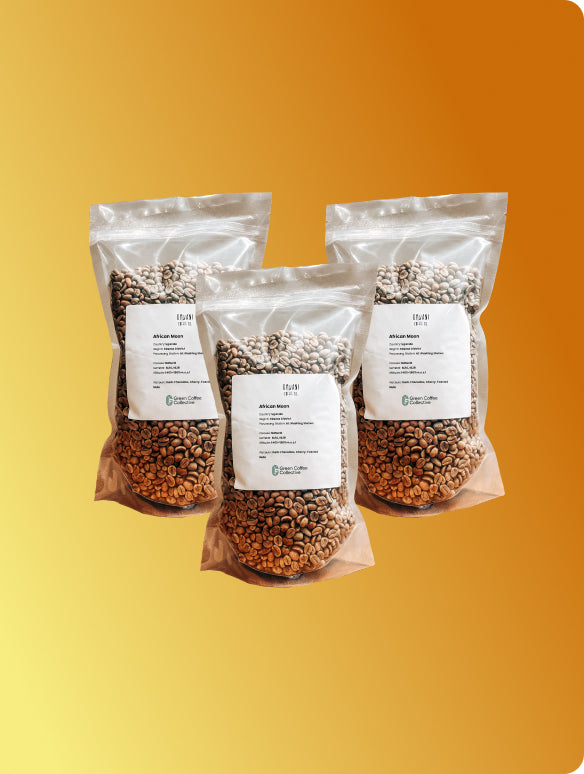The EU’s new deforestation regulation is ambitious - and overdue. It aims to stop products linked to forest loss from entering the European market, including coffee. In theory, it’s a step in the right direction. But for the 12.5 million smallholders who grow most of the world’s coffee, it could create serious new risks.
We’re taking a closer look at the EU Deforestation Regulation - what it is, why it exists, and what it means for coffee producers who are already under pressure.
What is the EU deforestation regulation?
Deforestation is one of the leading drivers of climate change and biodiversity loss. It’s defined as the conversion of forest to agricultural use - often for crops like soy, cacao, and coffee. In 2015, the UN Sustainable Development Goals set out a clear target: halt deforestation by 2020. That target was missed.
In response, momentum grew. At COP26 in Glasgow, the EU joined 143 other countries in committing to halt deforestation by 2030. The agreement acknowledged that halting forest loss, preserving remaining forests, and restoring degraded areas is essential if global climate goals are to be met. As part of this, the European Commission committed to working with partner countries to support a shift towards deforestation-free supply chains - including in coffee.
In June 2023, the EU introduced landmark legislation: the EU Deforestation Regulation (EUDR). The goal is clear - ensure that products consumed within the EU don’t contribute to deforestation or forest degradation anywhere in the world. The regulation covers seven key commodities: coffee, cocoa, soy, palm oil, rubber, wood, and cattle. Under the new rules, companies selling these products to the EU must prove that they’re deforestation-free - meaning they haven’t been produced on land cleared after 31 December 2020.
Originally scheduled to take effect in 2024, the legislation has now been delayed to allow for a phased rollout. Larger companies must comply by December 2025. Micro-enterprises have until June 2026. The EU will also classify producing countries by deforestation risk: low, medium, or high. The majority are expected to fall into the low-risk category, helping to direct scrutiny and resources where the challenges are most severe.
So what does this mean for coffee?
Coffee is the sixth-largest agricultural driver of global deforestation. In countries like Brazil, Vietnam, and Indonesia, large swathes of rainforest have been cleared to make way for monoculture plantations. Around 40% of global coffee comes from these sun-grown systems, where biodiversity is stripped back in favour of yield and uniformity.
Unsurprisingly, the EUDR has faced lobbying from across the coffee sector. The German Coffee Federation, representing companies like Melitta, Segafredo, and Fairtrade Deutschland, raised concerns, as did the European Coffee Federation, whose members include Nestlé, Starbucks, Lavazza, and ECOM. The argument: the regulation risks placing an excessive burden on producers and exporters, particularly in regions with limited resources or infrastructure for traceability.
But perhaps the more pressing issue lies not with big plantations - but with the 12.5 million smallholder farmers who produce the other 60% of the world’s coffee. Most of them farm less than five hectares. In many countries, deforestation is not driven by large-scale agribusiness but by poverty and lack of viable alternatives. For these farmers, compliance with the EUDR could be costly, complicated, or simply out of reach.
Take Ethiopia. Millions of smallholders grow coffee there, often intercropped with native forest species and traded through informal, fragmented supply chains. Proving that their coffee meets the EU’s deforestation criteria is a logistical and financial challenge. And yet, the stakes are high. Coffee accounts for a third of Ethiopia’s total exports - and 30% of that goes to the EU. In some producing countries, up to a quarter of the population depends on coffee for income. Losing access to the EU market would be devastating.
The regulation doesn’t directly address the structural issues behind deforestation - such as land insecurity, inequality, or lack of investment in rural areas. Without support for smallholders, there's a real risk that well-meaning policies could backfire, widening the gap between those who can comply and those who can’t.
And more fundamentally - is this yet another guilt-induced strategy from the Global North? After all, the same countries now enforcing these standards were the ones that drove the climate crisis in the first place, building wealth through centuries of unsustainable growth. Now, they’re creating barriers for those in the Global South who are simply trying to develop - just as the Global North once did.
Strategies like the EUDR will only work if they’re backed by serious investment. If smallholders are expected to leapfrog the same extractive development pathways that others followed, they’ll need funding, technical support, and long-term partnerships to make that possible. Without that, we risk trading one form of injustice for another.
The global coffee market is already fragile. Prices fluctuate. Climate change is hitting yields. Input costs are rising. If access to major markets becomes harder, more producers may walk away from coffee altogether. Halting deforestation is essential - but it needs to be done in a way that includes, rather than excludes, the people who grow the coffee we all rely on.

